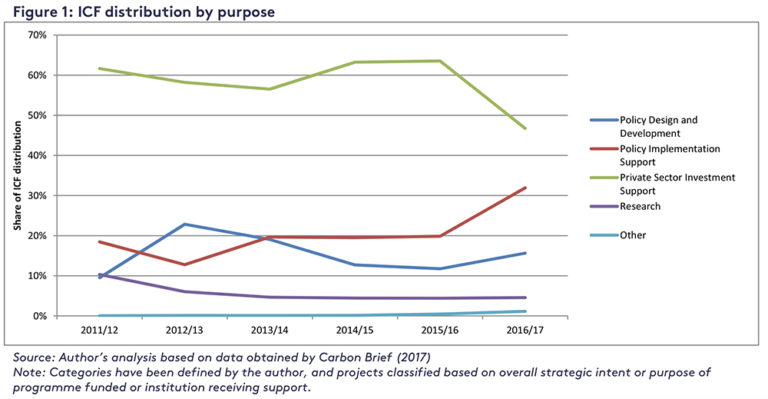Submission to the inquiry by the House of Commons Select Committee on International Development on: UK aid for combating climate change

Download
This written evidence was submitted on 28 September 2018 to the UK House of Commons Select Committee on International Development inquiry into ‘UK aid for combating climate change’. The submission addresses four questions set by the inquiry:
- What will the consequences be if the international development community fails to take action?
- Does the Government strike the right balance between adaptation and mitigation in its overseas development assistance (ODA) spending?
- Is it still appropriate to aim for targets or splits between adaptation and mitigation for ODA spending?
- How can the UK play an active role in leading the world on this issue?
Summary of key messages:
- UK official development assistance (ODA) related to climate change is allocated through the International Climate Fund (ICF).
- Some climate change impacts are already observable and further warming is now unavoidable. Therefore, mitigation and adaptation should be considered together and international development programmes designed, financed and allocated accordingly.
- The UK should take the lead by developing a robust screening process to determine a climate rationale for the allocation of all international development resources, not just those distributed through the ICF.
- The process should involve a holistic, coherent approach to considering both the mitigation and adaptation aspects of aid, given the scale of the impacts of climate change, and the threats that they pose to achieving development.
- Climate change has been identified as a priority area in the strategy of the CDC (the UK’s private sector development finance institution) over the next five years. The CDC should be encouraged to rise to this commitment through developing an integrated and holistic climate change screening and evaluation process and policies for all investments.
- This process of climate screening of all international development resources should also be championed across institutions in which the UK is a shareholder, including bilateral and multilateral institutions.
- The UK can also lead by championing reforms to the mandates of the multilateral development banks (MDBs) and making available additional resources for climate action.

